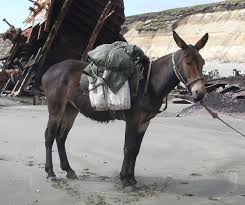IN ASAMPRAJNATA SAMADHI, THERE IS A CESSATION OF ALL MENTAL ACTIVITY, AND THE MIND ONLY RETAINS UNMANIFESTED IMPRESSIONS.
Samprajnata samadhi is the first step. Right reasoning, right reflection, a state of bliss, a glimpse of bliss, and a feeling of am-ness – pure simple existence without any ego in it – this leads to asamprajnata samadhi. First is a purity; second is a disappearance because even the purest is impure because it is there. “I” is wrong; “am” is also wrong – better than “I”, but a higher possibility is there when “am” also disappears – not only ahankar, but asmita also. You are impure; then you become pure. But if you start feeling that “I am pure,” purity itself has become – impurity. That too has to disappear.
Disappearance of impurity is samprajnata. Disappearance of purity also is asamprajnata. There is a cessation of all mental activity. Thoughts disappear in the first state. In the second state, thinking also disappears. Thorns disappear in the first state. In the second state, flowers also disappear. When no disappears in the first state, yes remains. In the second state, yes also disappears because yes is also related to no. How can you retain yes without no? They are together; you cannot separate them. If no disappears, how can you say yes? Deep down yes is saying no to no. Negation of negation – but a subtle no exists. When you say yes, what are you doing? You are not saying no, but the no is inside. You are not bringing it out: it is unmanifested.
Your yes cannot mean anything if you have no “no” within you. What it will mean? It will be meaningless. Yes has meaning only because of no; no has meaning only because of yes. They are a duality. In samprajnata samadhi, no is dropped: all that is wrong is dropped. in asamprajnata samadhi, yes is dropped. All that is right, all that is good, that too is dropped. In samprajnata samadhi you drop the devil; in asamprajnata samadhi you drop the God also, because how can God exist without the devil? They are two aspects of the same coin.
All activity ceases. Yes is also an activity, and activity is a tension. Something is going on, even beautiful but still something is going on. And after a period even the beautiful becomes ugly. After a period you are bored with flowers also. After a period, activity, even very subtle and pure, gives you a tension: it becomes anxiety.
IN ASAMPRAJNATA SAMADHI THERE IS A CESSATION OF ALL ACTIVITY, AND THE MIND ONLY RETAINS UNMANIFESTED IMPRESSIONS.
But still, it is not the goal – because what will happen to all your impressions that you have gathered in the past? Many, many lives you have lived, acted, reacted. You have done many things, undone many things. What will happen to it? Conscious mind has become pure; the conscious mind has dropped even the activity of purity. But the unconscious is vast and there you carry all the seeds, the blueprints. They are within you.
The tree has disappeared; you have cut down the tree completely. But the seeds that have fallen, they are in the ground Lying. They will sprout when their season comes. You will have another life; you will be born again. Of course, your quality will be different now, but you will be born again because those seeds are still not burned.
You have cut down that which was manifested. It is easy to cut down anything that is in manifestation; it is easy to cut all the trees. You can go into the garden and pull up all the whole lawn, the grass completely; you can kill everything. But within two weeks the grass will be coming up again because what you did is only with the manifested. The seeds which are Lying in the soil you have not touched yet. That has to be done in the third state.
Asamprajnata samadhi is still sabeej – with seeds. And there are methods how to burn those seeds, how to create fire-fire that Heraclitus talked about, how to create that fire and burn the unconscious seeds. When they also disappear, then the soil is absolutely pure; nothing can arise out of it. Then there is no birth, no death. Then the whole wheel stops for you; you have dropped out of the wheel. And dropping out of society won’t help unless you drop out of the wheel. Then you become a perfect dropout.
A Buddha is a perfect dropout; a Mahavira, a Patanjali, is a perfect drop-out. They have not dropped out of the establishment or the society. They have dropped out of the very wheel of life and death. But that happens only when all the seeds are burned. The final is nir-beej samadhi – seedless.
IN ASAMPRAJNATA SAMADHI THERE IS A CESSATION OF ALL MENTAL ACTIVITY, AND THE MIND ONLY RETAINS UNMANIFESTED IMPRESSIONS.
VIDEHAS AND PRAKRITI-LAYAS ATTAIN ASAMPRAJNATA SAMADHI BECAUSE THEY CEASED TO IDENTIFY THEMSELVES WITH THEIR BODIES IN THEIR PREVIOUS LIFE. THEY TAKE REBIRTH BECAUSE SEEDS OF DESIRE REMAINED.
Even a Buddha is born. In his past life he attained to asamprajnata samadhi, but the seeds were there. He had to come once more. Even a Mahavira is born – once – the seeds bring him. But this is going to be the last life. After asamprajnata samadhi, only one life is possible. But then the quality of life will be totally different because this man will not be identified with the body. And this man really has nothing to do because the activity of the mind has ceased. Then what will he do? For what this one life is needed? He has just to allow those seeds to be manifested, and he will remain a witness. This is the fire.
One man came and spat on Buddha; he was angry. Buddha wiped his face and asked, “What else you have to say?” The man could not understand. He was really angry – red-hot. He could not even understand what Buddha was saying. And the whole thing was so absurd, because Buddha didn’t react. The man was at loss what to do, what to say. He went away; the whole night he couldn’t sleep. How can you sleep when you insult somebody and there is no reaction? Then your insult comes back to yourself. You threw the arrow; it has not been received. It comes back: it comes back to the source finding no shelter. He insulted Buddha, but the insult couldn’t find shelter there. So where will it go? It comes to the original master.
The whole night he was feverish; he couldn’t believe what had happened. And then he started repenting, that he was wrong – that he had not done good. The next morning, early, he went and he asked for forgiveness. Buddha said, “Don’t be worried about it. I must have done something wrong to you in the past. Now the account is closed. And I am not going to react. Otherwise again and again… Finished! I have not reacted. Because it was a seed somewhere, it has to be finished. Now my account with you is closed.”
In this life when a videha – one who has understood that he is not the body, who has attained asamprajnata samadhi – comes into the world just to finish accounts… His whole life consists of finishing accounts; millions of lives, many relationships, many involvements, commitments – everything has to be closed.
It happened: Buddha came to a village. The whole village gathered; they were eager to listen to him. It was a rare opportunity. Even capitals were inviting continuously Buddha, and he was not coming. And he has come to this small village out of the way – and without any invitation, because the villagers never could gather courage to go and ask him to come to their village – just a small village, few huts, and he has come without any invitation. The whole village is afire with excitement, and he is sitting under the tree and not speaking.
And they said, “For whom you are waiting now? Everybody is here; the whole village is here. You start.” Buddha said, “But I have to wait because I have come for someone who is not here. A promise has to be fulfilled, an account closed. I am waiting for that one.” Then came a girl, and then Buddha started. Then after he talked, they asked, “Were you waiting for this girl?”
Because the girl belonged to the untouchables – to the lowest caste, nobody could think of Buddha waiting for her. He said, “Yes, I was waiting for her. When I was coming she met me on the road and she said, ‘Wait, because I am going for some work to the other town. But I will come soon.’ And in past lives somewhere I had given her a promise that when I become enlightened I will come and say whatsoever has happened to me. That account has to be closed. That promise is hanging on me, and if I can not fulfill it, I will have to come again.”
A videha or a prakriti-laya: both words are beautiful. Videha means bodiless. When you attain asamprajnata samadhi the body is there, but you become bodiless. You are no more the body. The body becomes the abode, you are not identified.
So these two terms are beautiful. videha means one who knows that he is not the body – knows, remember – not believes. And prakriti-laya, because one who knows that he is not the body, he is no more the prakriti – nature.
Body belongs to the material. Once you are not identified with the matter in you, you are not identified with the matter without, outside. A man who attains that he is no more the body, that he is no more the manifested – the prakriti – his nature is dissolved. There is no more world for him; he is not identified. He has become a witness to it. Such a man is also born once at least because he has to close many accounts, many promises to be fulfilled, many karmas to be dropped.
A videha, a man who has attained to asamprajnata, does not react. He simply watches, witnesses. And this is the fire of witnessing which burns all the seeds in the unconscious. And a moment comes when the soil is absolutely pure. There is no seed waiting to sprout. Then there is no need to come back. First nature dissolves, and then he dissolves himself into the universe.
VIDEHAS AND PRAKRITI-LAYAS ATTAIN ASAMPRAJNATA SAMADHI BECAUSE THEY CEASED TO IDENTIFY THEMSELVES WITH THEIR BODIES IN THEIR PREVIOUS LIFE. THEY TAKE REBIRTH BECAUSE SEEDS OF DESIRE REMAINED.
I am here to fulfill something; you are here to close my account. You are here not accidentally. There are millions of people in the world. Why are you here, and not somebody else? Something has to be closed.
Tags: Patanjali Yoga Sutra 6.2 Asamprajnata Samadhi










